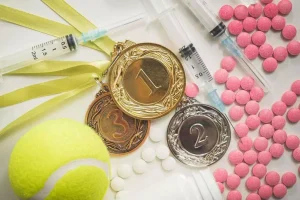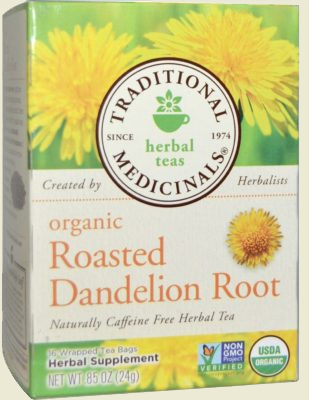15 Common Misconceptions About Addiction

It’s important to realise that addiction is not a choice, but a result of a lot of different factors, such as genetics, environment, trauma, mental health problems, and more. So, anyone could be affected by addiction, regardless of who they are. It’s important to challenge shame by being understanding and compassionate. People need places where they can talk about addiction without judgement. Education is also important, so that people understand the true nature of addiction.
#3. People usually get addicted to one type of substance.
So, it needs evidence-based treatments made for individual needs. It doesn’t matter what age, income, ethnicity, religion, family, or profession you are. Shame https://ecosoberhouse.com/ about addiction makes it hard for people to seek help or talk about it. So, it is important to address these issues and give support to people with addiction.
Hidden Addiction and the Spread of Myths and Misconceptions
Another fantasy is that relapse shows failure or a lack of self-control. Actually, relapse is a frequent event in recovery and should be seen as an opportunity for improvement, not a letdown. It shows the requirement for changing treatment strategies or added support services. Alternative and often more affordable options are available, such as community-based programs, faith-based initiatives, and online resources. These are all geared towards making sure everyone can afford treatment. Treatment tailored to individual needs is fundamental for long-term sobriety.

What is stigma of addiction?
It’s essential to confront these misconceptions and create a kinder view of addiction. Punishing people with addiction just continues the stigma and stops them from getting help. Instead of punishment, individuals should get the resources for treatment and support on their healing journey. Willpower alone won’t cut it when it comes to overcoming addiction. It’s a complex disease stemming from various sources – not just a matter of choice.
MAT replaces street opioids for illicit drug users with prescribed Suboxone, buprenorphine, or methadone. I answered that this was a logical and true answer, since getting drugs on the street was always more deadly than taking drugs under medical supervision. But I added that this was not a sufficient explanation for drug deaths due to everything from stimulants to the whole array of depressant-analgesic drugs rising in lockstep. David Sack, M.D., is board certified in addiction psychiatry and addiction medicine and serves as CMO of Elements Behavioral Health and Promises Treatment Centers. Staying busy, reconsidering coping strategies, and focusing on mental health can get you back on track to recovery. Unfortunately, many of your problems will not go away after you get sober.

Prescription Drugs Can’t Be Addictive
Dual diagnosis addressing mental health issues alongside addiction is essential for comprehensive rehabilitation. Furthermore, teaching others and spreading precise data about addiction helps fight misconceptions and promotes understanding. Dual diagnosis and addressing mental health issues are also vital in the recovery process. Many with addiction also battle underlying mental health issues.

The same goes for both depression and general feelings of stress and overwhelm. Warren is a Licensed Master Social Worker, who specializes in substance abuse and mental health treatment. Clinically, Warren has developed a therapeutic skillset that utilizes a strengths-based perspective, Twelve Step philosophies, Cognitive Behavioral Therapy and Motivational Interviewing.
Myth #5 Relapse makes you a failure.

Compassionate environments like Sandstone Care, provide supportive spaces for those seeking help. Addiction is an intricate disease that doesn’t pay attention to character or moral standing. It’s essential to understand that folks with addiction aren’t necessarily bad and should not be punished for their difficulties. The medical community doesn’t have much knowledge about addiction, which leads to stigma and shame. These misconceptions can stop someone from searching for help or talking about the effects of addiction. By getting rid of these myths and misconceptions, we can raise understanding, sympathy, and support for those fighting addiction.
- Understanding the complexity of addiction and the ongoing nature of recovery helps dispel myths and promotes empathy and support for individuals on their path to healing.
- Encouraging individuals to seek help, such as from support groups or addiction professionals, can provide the necessary guidance and assistance during this challenging time.
- The idea of putting your life on hold to enter a treatment program may seem overwhelming.
- Addiction is a complex condition that can develop due to various factors such as genetics, environment, trauma, mental health issues, and social influences.
- Understanding the journey of addiction and recovery is crucial to dispelling myths and promoting accurate knowledge.
Breaking Down the Myths and Misconceptions About Addiction and Recovery
- So, it needs evidence-based treatments made for individual needs.
- Relapse rates for addiction are high, indicating that overcoming addiction is not as simple as just “quitting” and that ongoing support is crucial for maintaining sobriety.
- Recovery from addiction is a lifelong process that requires ongoing commitment, effort, and support.
When you’re struggling with substance abuse disorder, you can’t simply say ‘No’ to solve the problem, otherwise, it wouldn’t be an addiction. One common misconception about addiction recovery is that it is a quick and straightforward process. This myth may stem from the portrayal of recovery in popular media, where individuals often overcome their addiction in a short period of time.
Understanding the complexity of addiction and the ongoing nature of recovery helps dispel myths and promotes empathy and support for individuals on their path to healing. Some people have heard that the best and only way to really “kick the habit” is to quit cold turkey, meaning to quit suddenly. People who believe this thinking don’t take action because the thought of stopping all of a sudden myths about addiction and recovery seems so drastic. Also, doing it by yourself can be dangerous due to all the withdrawal symptoms you’ll likely experience. At a qualified rehab facility, you’ll have professional clinicians assisting you through the process, making sure you are safe during detox. Shame and silence only keep the cycle of addiction going, but searching for help and backing others can break the chains.



